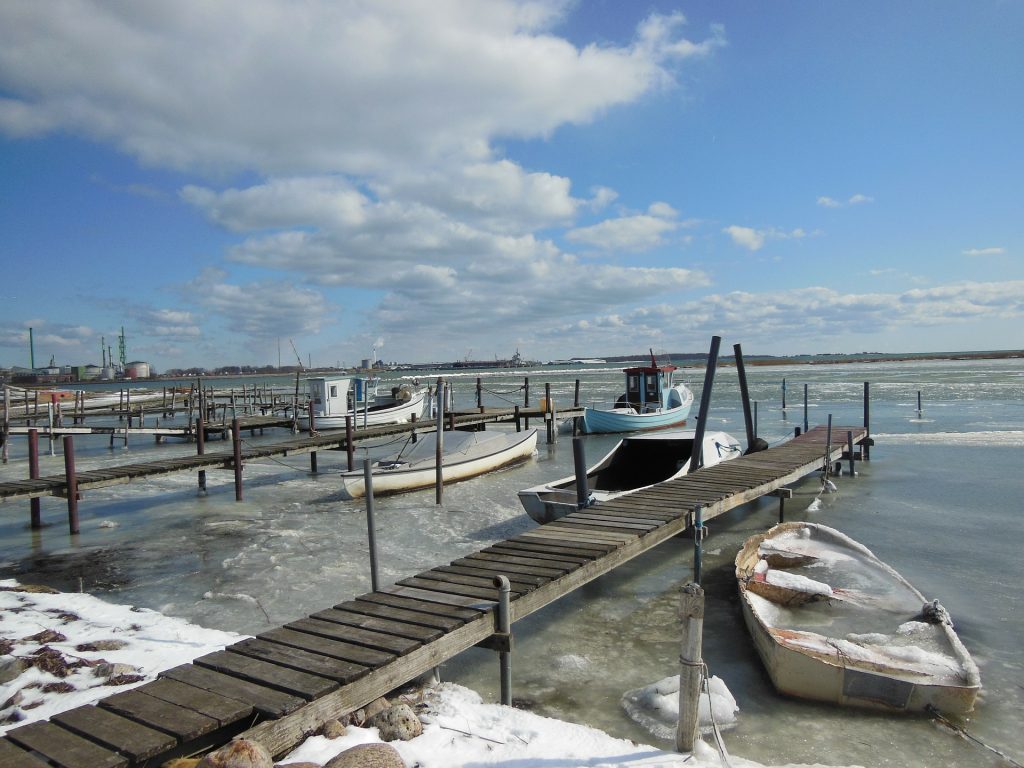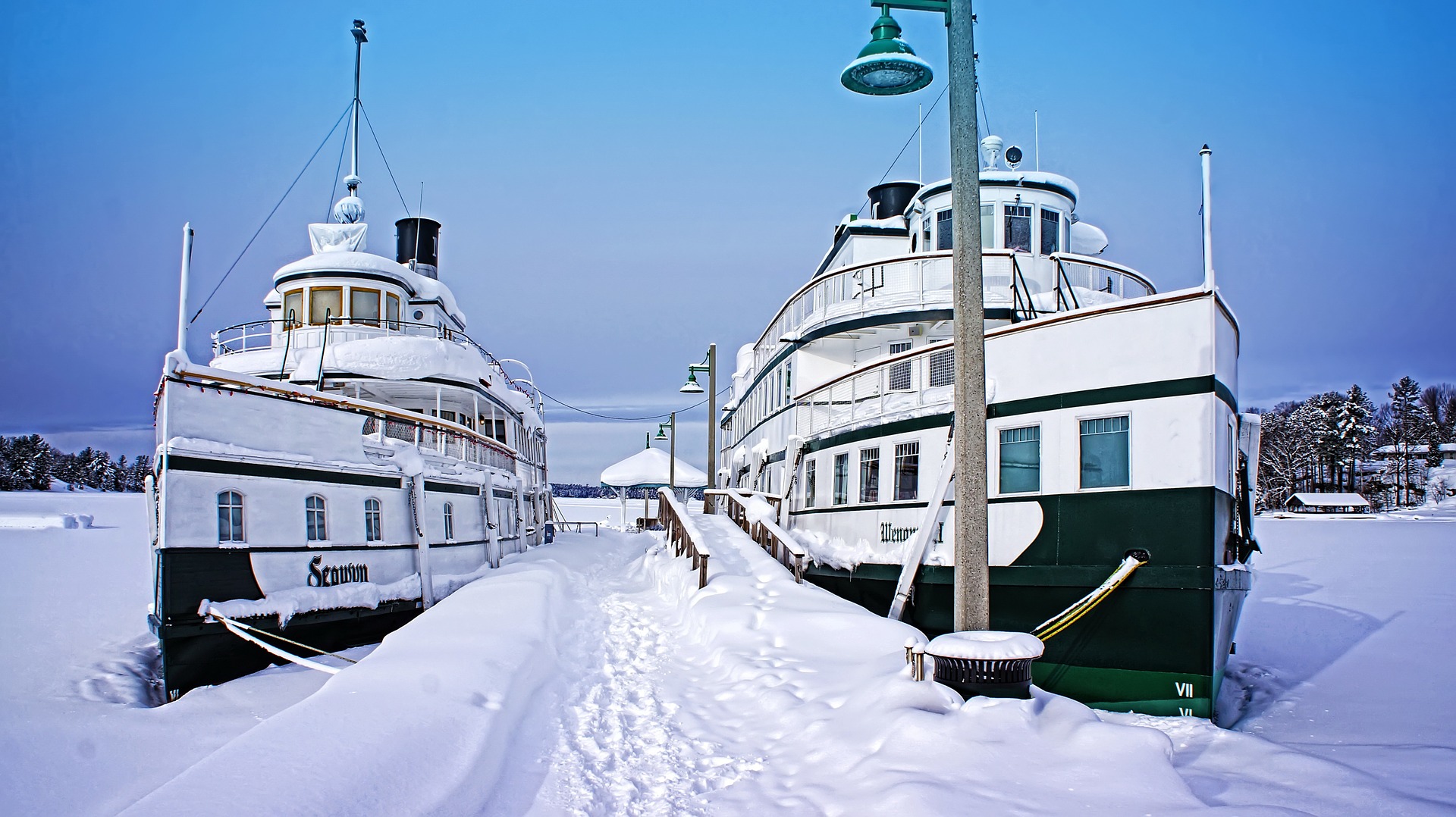Pontoons in Winter: A Short Guide for Boaters
I’m gonna be honest with you – it’s super hard to find anything to write about boating in the dead of winter. We are all looking forward to better times – when the sun finally comes out and the weather heats up and the wind slows down so we can take our good ol’ toons for a ride again.
Right now, the only boating related activity I will be caught doing is online shopping – a new towable tube for the upcoming summer (as I suspect the old one is leaking air at the seams after 3 years of use), a mini fridge, and maybe another fishing rod holder. But there’s still at least three months until I’m able to actually use these things! Awful, right? My boat is currently docked at a nearby lake, all muffled up in her winter cover… Wait, have I ever talked

The answer is no, so I’m gonna go ahead and do it now – although we are already halfway into the cold season, you might be able to pick up some useful tips for winterizing your pontoon – be that now or next year. Here’s what you wanna do to prepare your pontoon for the winter:
Table of Contents
Clean It Thoroughly Inside and Out
This goes without saying, but whenever you’ve leaving your boat unsupervised for longer periods of time, you need to give it a good scrubbing before. Remove everything from the deck – your fishing tools, any flotation/safety devices and check the fridge/minibar for leftover food or drinks. The chance of rats nesting during the winter is rather low, but make sure you vacuum and get rid of any crumbs anyway – better safe than sorry. Also, make sure to dry the deck thoroughly before putting on the winter cover – as the tiniest amount of water will lead to mold formation.
For the outside of the boat, check for any plants or debris stuck to the pontoons. It’s best to get rid of those now and not leave it until spring – believe me,
Winterize the Engine
You know the drill – when the engine is not in use for a long period of time, you have to make sure it’s completely safeguarded. Empty your pipes first and then drain the coolant from your angine and replace it with propylene glycol based antifreeze.
Get a Winter Cover
While any boat cover might do the trick, especially if you live somewhere not very cold
This would be all you need to do to prepare your boat for the winter – again, if you have any other tips and tricks, feel free to add in the comments below.

